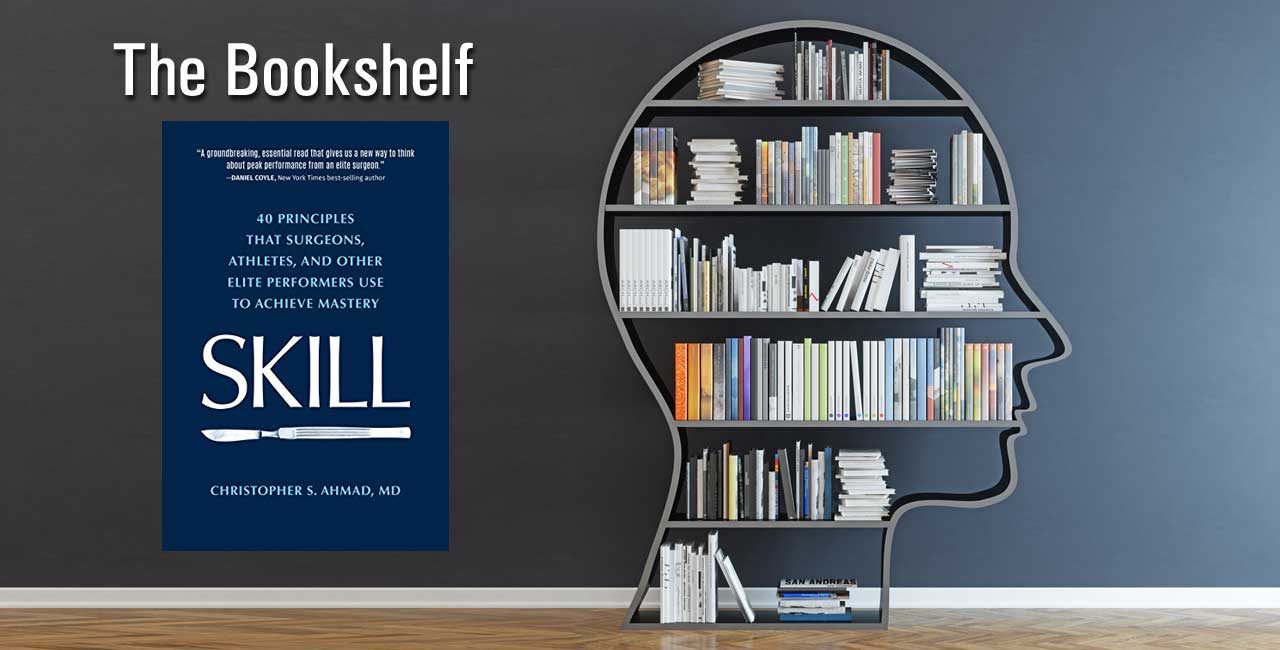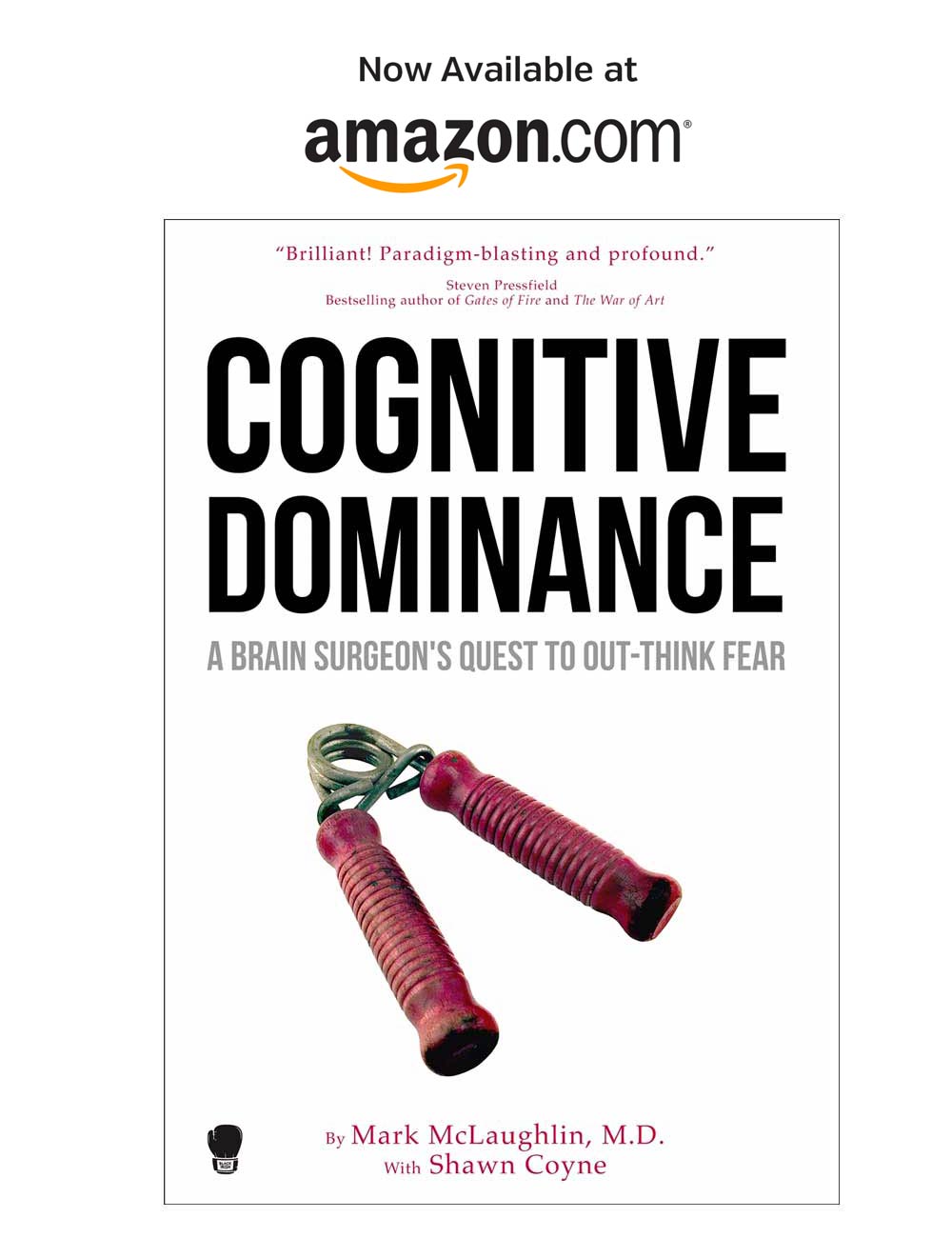3 Essential Skills for Elite Performance in Health Care

I recently read Christopher Ahmad’s book SKILL: 40 Principles That Surgeons, Athletes, And Other Elite Performers Use to Achieve Mastery. I enjoyed this book immensely and highly recommend it for anyone interested in self betterment and especially for people entering healthcare professions.
Ahmad organizes the book into 40 rules that he has documented and embraced during his career. Some are similar or related to ones I describe in my own upcoming book Cognitive Dominance. A few were truly unique and enlightening. I will focus on the three that meant the most to me.
Reverse Engineer Your Mentor
I really loved this rule because it’s counterintuitive. The author prescribes a thought experiment where the reader dissects the strengths of their greatest teachers. By exploring the origins/underpinnings/foundation of a trusted advisor’s excellence we can better assimilate their skills. Some of our mentors exhibit composure under pressure, others herculean work ethic, and still others command encyclopedic anatomical or biomechanical wisdom. They may also harbor some less desirable traits that sometimes undermine their excellence.
But if we can zoom in on those particular characteristics that are superior and study the mentors’ impressive building blocks of knowledge and technique, we can better absorb and incorporate their successful playbook into ours.
Ahmad also believes in going beyond passive observation of the teacher. He urges readers to take command of their observations and immerse themselves in the teacher’s excellence. He points out that if you can identify, break down and assimilate your mentor’s qualities, you will nurture your own path to excellence.
I also liked his related suggestion on believing that you’re better than your mentor. He points out that thinking or pretending that you are actually better than the master is a way to intensify your own work. Out of immense respect for my teachers, I struggle with this principle, but it’s an exercise worth engaging and has significant merit.
Always Carry a Notebook
I follow this rule religiously. I’ve had a Franklin Planner now for over a decade and journal daily. (The concept for the planner was developed in 1984 and was named in honor of Benjamin Franklin, who kept a private notebook.) Any notes, thoughts or ideas that come to me, I record in my planner.
If I am listening to a book on tape, I’ll put my notes in the margin of the planner. By having a notebook always at hand, no idea is ever forgotten. Sometimes I’ll review past months and my notes will remind me to follow up on an important thought I had on that day. It’s great for tracking progress on any resolutions I make, jotting down definitions of new words I learn, or looking ahead to an upcoming enjoyable event. I’ve found that electronic planners just cannot display for me my upcoming month of activities in the format that gives me the mental picture I need.
Ahmad gives leather notebooks to each of his orthopedic colleagues to inspire them to log written results from the day, ideas for tomorrow and goals for the next week. It is a thoughtful and useful gift.
Appreciate and Differentiate Between Hard and Soft Skills
Another interesting rule was to “Appreciate and differentiate between hard and soft skills.” Ahmad defines hard skills as repeatable and precise whereas soft skills are more like managing the unexpected. I liked the quote, “Talented surgeons know when to extend the incision, know when to ask for an immediate transfusion for their patient, and know when to accept good instead of great when catastrophe is looming.”
For me, in my day-to-day interactions at the multiple hospitals I serve, I see many technically and intellectually competent physicians and other healthcare professionals practicing around me. Technical and intellectual competance are hard skills that all doctors and nurses and physical therapists must have to do their job. The truly great ones are those who also have mastered the soft skills of emotional intelligence, politeness, mutual respect, and gratitude. They recognize the incredible privilege it is to have patients entrust their lives to us. And they are the leaders most sought after for consultation because they are a complete package.
Reflections
Ahmad finishes his book with additional reflections. As a youth wrestling coach in Trenton, I appreciated his perspective on the pursuit of becoming a better coach, including using the first seconds of a motivational talk to connect to the team on an emotional level, followed by keeping the rest of the speech short. He recommends delivering necessary information in vivid, memorable chunks. The talk might even leverage the Pygmalion Effect – when the leader sets high expectations that the team members meet. If you want to read an in-depth piece about this psychological principle, here’s a Harvard Business Review article that looks at the Pygmalion Effect from several angles.
Ahmad’s book SKILL offers a wide-ranging menu of principles that I think you’ll find enjoyable. Dig In!
